Episodes
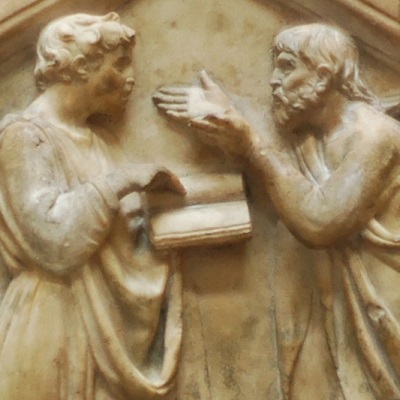
Tuesday Feb 13, 2018
Lecture: Is Reading Plato Necessary for Salvation? by Dr. Thaddeus Kozinski
Tuesday Feb 13, 2018
Tuesday Feb 13, 2018
Each year Wyoming Catholic College sponsors our Lecture Series for all students (attendance is required), faculty, staff, and our neighbors in Lander and beyond.
On February 2, The Feast of the Presentation, Dr. Thaddeus Kozinski, our Academic Dean and Associate Professor of Humanities and Philosophy delivered a lecture entitled, “Is Reading Plato Necessary for Salvation?” and we’re delighted to offer it to you in its entirety as an After Dinner Scholar podcast.

Tuesday Feb 13, 2018
Is Reading Plato Necessary for Salvation? with Dr. Thaddeus Kozinski
Tuesday Feb 13, 2018
Tuesday Feb 13, 2018
During their years at Wyoming Catholic College, students study a number of Platonic dialogues. Plato, we believe, has a great deal to say to us. His writings are central to Western civilization. But what about our personal lives? Is Plato in any sense central to or even important to our lives as Christian people?
Wyoming Catholic College Academic Dean Dr. Thaddeus Kozinski in a recent lecture entitled, "Is Reading Plato Necessary for Salvation?" argued that Plato is vital to our spiritual lives as humans and as Christian believers.
Dr. Kozinski is this week's guest on this The After Dinner Scholar interview. We are also making his entire lecture is available as a podcast.

Tuesday Jan 16, 2018
Pope Paul VI, Humanae Vitae, and the March for Life with Dr. Jeremy Holmes
Tuesday Jan 16, 2018
Tuesday Jan 16, 2018
Forty-five years ago, on January 22, 1973, the U. S. Supreme Court decided the case Roe v. Wade thereby overturning all state laws and legalizing abortion on demand across the United States. Beginning the following January, a small group began what they called The National March for Life. Since then, the March has grown into a vast gathering on the Mall in Washington, DC and in cities across the country protesting the legalized murder of the innocents in their mothers’ wombs.
Rather than viewing abortion as an isolated issue, it’s important to remember that the desire for sex without the consequence of children is part of a much larger cultural crisis, a cultural crisis Pope Paul VI outlined in Humanae Vitae.
While Humanae Vitae is known as that encyclical about birth control, the issues it raises apply directly to abortion as well. Wyoming Catholic College theologian, Dr. Jeremy Holmes joins us this week to talk about the encyclical and its relationship to abortion.
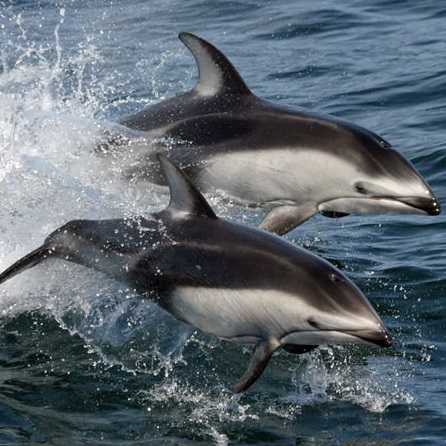
Tuesday Nov 28, 2017
Master of My Own Fate or Dependent Rational Animal? with Dr. Thaddeus Kozinski
Tuesday Nov 28, 2017
Tuesday Nov 28, 2017
In his poem “Invictus” (Latin for “Unconquered”) William Earnest Henley famously proclaimed, “I am the master of my fate: I am the captain of my soul.”
Henley sentiment expresses well the spirit of the age we live in more than one hundred twenty-five years after he penned those words. Our culture feeds our desire for autonomy and individualism. The rugged individual who blazes his or her own trail needing and depending only on but what Henley called, “my unconquerable soul” is today’s heroic cultural icon.
In his book Dependent Rational Animal: Why Human Beings Need the Virtues philosopher Alasdair MacIntyre takes aim at that kind of wishful human autonomy expressed in Henley’s poem. Wyoming Catholic College Academic Dean, Dr. Thaddeus Kozinski has been reading MacIntyre with our juniors and is our guest this week on The After Dinner Scholar.

Tuesday Nov 14, 2017
What is the Soul?: Aristotle's de Anima with Dr. Michael Bolin
Tuesday Nov 14, 2017
Tuesday Nov 14, 2017
What does it mean to be alive? How does the life of a pine tree differ from the life of a puppy differ from the life of a person? What is it that we possess through life, but lose in death? Is it a soul? And if so, what exactly is a soul?
In De Anima, On the Soul, Aristotle explored these questions, questions that while seemingly abstract remain critical to many of our current debates. The definition of “to be alive” is central to questions of abortion and euthanasia and the way we understand the human body and the human soul inform what we think about sexuality and marriage.
Our guest this week, Wyoming Catholic College philosophy professor Dr. Michael Bolin, specializes in the work of Aristotle and St. Thomas Aquinas. He is currently teaching De Anima to Wyoming Catholic College sophomores.
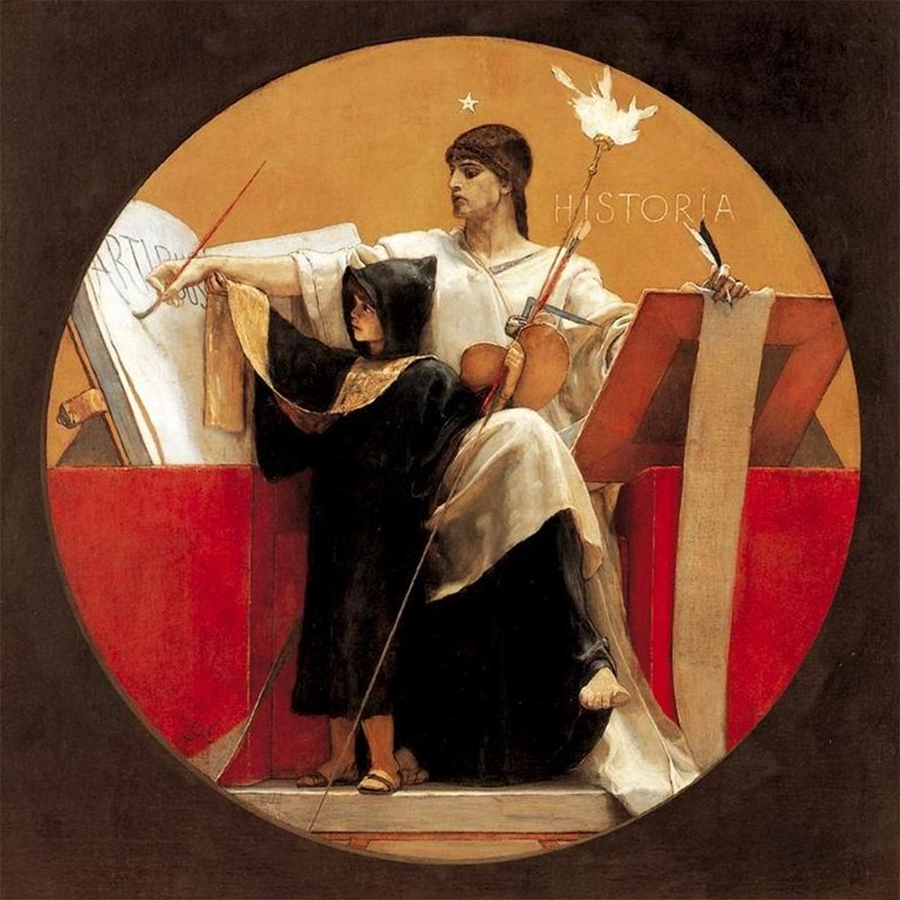
Tuesday Nov 07, 2017
Tuesday Nov 07, 2017
In 1984, when a young Gleaves Whitney journeyed from his home in Colorado to graduate school at the University of Michigan, it was with some trepidation. His doctoral advisor, according to a friend, “can be a mite prickly and doesn’t suffer fools gladly.”
Dr. Whitney’s advisor was historian Stephen Tonsor. Tonsor—a faithful Catholic with a strong belief in truth and a decidedly conservative political philosophy—seemed out of place at Michigan where he taught for nearly forty years. Yet his academic excellence, his brilliant mind, and his strong Christian character changed the lives of many of his students including Dr. Whitney.
Dr. Gleaves Whitney is Director of The Hauenstein Center for Presidential Studies at Grand Valley State University, a member of Wyoming Catholic College’s Catholic Scholars Advisory Board, and our guest on The After Dinner Scholar.
The book Dr. Whitney recommends in the podcast is Equality, Decadence and Modernity: The Collected Essays of Stephen J. Tonsor edited by Gregory L. Schneider.
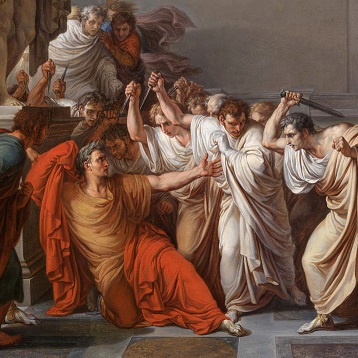
Tuesday Oct 17, 2017
Shakespeare, Caesar, Culture, and Politics with Dr. Khalil Habib
Tuesday Oct 17, 2017
Tuesday Oct 17, 2017
Behind the personal conflicts in in Shakespeare’s Julius Caesar, says Wyoming Catholic College board member Dr Khalil Habib, the bard is making the case that “politics always swims downstream from culture.”
Just as Caesar believes that he is driving changes in Rome, so, too, Brutus, Cassius, and their fellow conspirators believe that they are driving changes by murdering him. In fact, it is the changing Roman culture that drives the events much more than the men involved. Rome changed from the days of the Republic to the eve of the Empire. Killing Caesar cannot and does not undo those changes.
In addition to being Associate Professor of Philosophy and Director of the Pell Honors Program at Salve Regina University, Dr. Habib is a member of the Wyoming Catholic College Board of Directors and our guest on this week’s After Dinner Scholar.
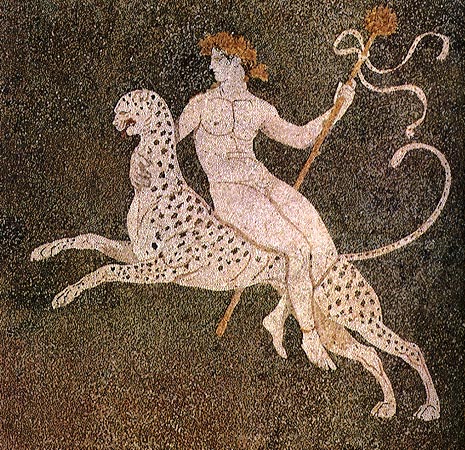
Tuesday Oct 10, 2017
Dionysus, Apollo, and the Challenge of Deep Knowing with Dr. Thaddeus Kozinski
Tuesday Oct 10, 2017
Tuesday Oct 10, 2017
“What is good?" asked Friedrich Nietzsche, "The Anti-Christ. Whatever augments the feeling of power, the will to power, power itself in man. What is evil? Whatever springs from weakness. What is happiness? The feeling that power increases—that resistance is overcome.”
Thus it seems curious that Sean Steel, a member of the education faculty at the University of Calgary, should use Nietzschean categories--the Dionysian, the Apollonian, the anti-Dionysian--to propose a rather congenial understanding of a good education.
The Wyoming Catholic College faculty read and discussed Steel’s article “Schooling for ‘Deep Knowing’” during a recent symposium. Our Academic Dean, Dr. Thaddeus Kozinski, led our discussion and is our guest on this week’s After Dinner Scholar.
Sean Steel's article, "Schooling for 'Deep Knowing'" can be found here.

Tuesday Sep 26, 2017
Tuesday Sep 26, 2017
When The New York Journal published the text of the newly proposed United States Constitution, alongside they ran a column criticizing the constitution as aristocratic tyranny and calling for a “No” vote on ratification.
Alexander Hamilton, James Madison, and John Jay, quills in hand, stepped forward to defend the document. In a series of 85 newspaper columns, they not only defended the Constitution as written, but provided all the background and the logic that went into the framers’ thinking.
The result is what is known as The Federalist Papers, a book Wyoming Catholic College political philosopher Virginia Arbery has taught repeatedly and is currently teaching to our seniors.
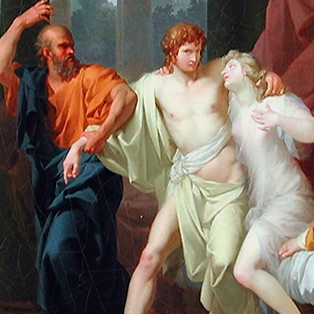
Tuesday Sep 19, 2017
Plato's "Alcibiades": The Gateway to Philosophy with Professor Kyle Washut
Tuesday Sep 19, 2017
Tuesday Sep 19, 2017
“What do you hope to achieve by bothering me?” It’s a question many asked Socrates and in the dialogue Alcibiades, he answers the question.
Alcibiades yearns for a life in politics and is both an attractive and ambitious would-be leader of Athens. He would appear to have a great future before him, but Socrates tells him—convinces him, “You are wedded to stupidity, my good fellow, stupidity of the highest degree.” Alcibiades can’t explain the difference between justice and injustice, good and bad, advantageous and disadvantageous.
Professor Kyle Washut introduced the Wyoming Catholic College freshmen to philosophy and the value of studying philosophy with Socrates' conversation with Alcibiades. Through it they see themselves and their need for education in a new way.

